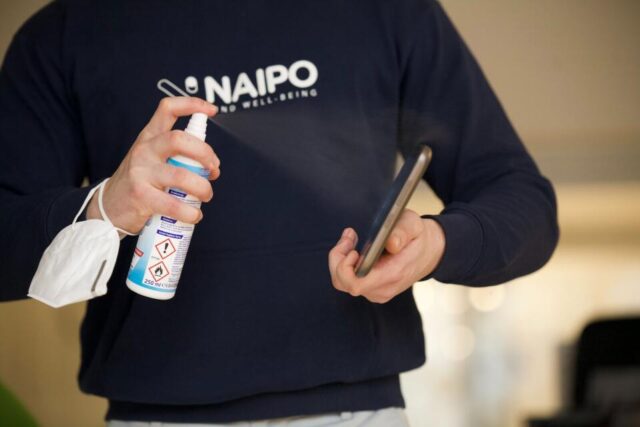A peer-reviewed study has raised concerns about the long-term effects of a group of chemicals called ‘quats’, which are commonly used in disinfectant wipes and sprays.
THE Covid-19 pandemic has made many of us more aware of the importance of hygiene, and disinfectant wipes and sprays have become increasingly popular in households and public spaces alike.
However, a new peer-reviewed study (Quaternary Ammonium Compounds: A Chemical Class of Emerging Concern) published in The Guardian has highlighted the potential health risks associated with the use of disinfectant wipes containing a group of chemicals called “quats.” The study has raised concerns about the long-term effects of the chemicals contained in many popular disinfectant wipes and sprays.
The study, co-authored by toxicologists at Michigan State University and published in the journal Environmental Science and Technology, highlights the risks associated with a chemical group called “quats”, which are commonly used in disinfectant wipes and sprays.
Among the concerns raised by the study is that quats are not particularly effective at killing germs, and they also contribute to antimicrobial resistance, pollute the environment and are linked to serious health problems.
The researchers point out that most Americans are thought to have some level of quats in their blood, with levels roughly doubling in over 90% of those tested after the pandemic began.
While disinfectant wipes and sprays have become an essential tool in the fight against Covid-19, the study’s authors argue that there are safer and more effective alternatives available. They suggest that simple soap and water or alcohol-based sanitisers may be equally effective, without the potential hazards associated with using quats.
In response to the study, industry representatives have defended the use of quats, pointing to their long history of safe use in consumer products and disinfectants.
However, the researchers behind the study say that they hope it will encourage people to reconsider their use of disinfectant wipes and sprays and look for safer alternatives.
As co-author Courtney Carignan puts it: “The chemicals ‘might not be efficacious, but also might be harmful’“.
While quats are commonly used in disinfectant wipes and sprays, they point out that they are associated with serious health problems and are linked to antimicrobial resistance.
The dangers of quats highlighted include potential harm to human health and the environment. According to the study, quats are associated with serious health problems, such as respiratory problems, skin irritation, and hormone disruption.
The chemicals contribute to antimicrobial resistance, which makes it harder to fight off infections and can increase the risk of superbugs. Quats can also pollute the environment, including waterways and aquatic life, and may not be particularly effective at killing germs.
While quats have a long history of safe use in consumer products, the study’s authors suggest that people may be better off using soap and water or alcohol-based sanitisers, which are effective without the potential hazards associated with quats.
Further, it is important to maintain good hygiene practices, as is equally important to be aware of the potential health risks associated with the chemicals in disinfectant wipes and sprays.
It is vitally important to note that the study does not suggest that we should stop using disinfectant wipes and sprays altogether. Instead, it recommends that we use them sparingly and only when necessary.
In addition, we need to look for alternative cleaning methods that are effective and safe.








